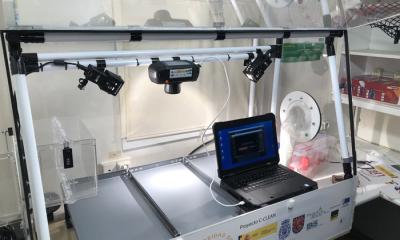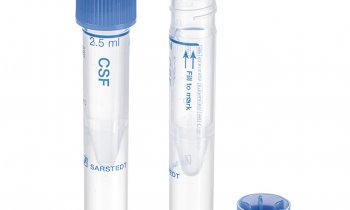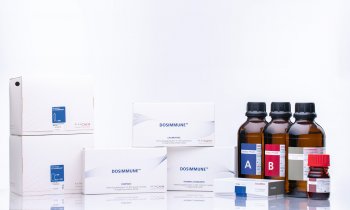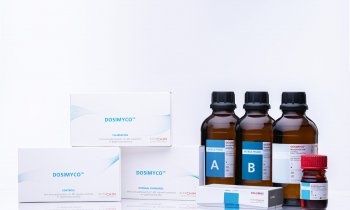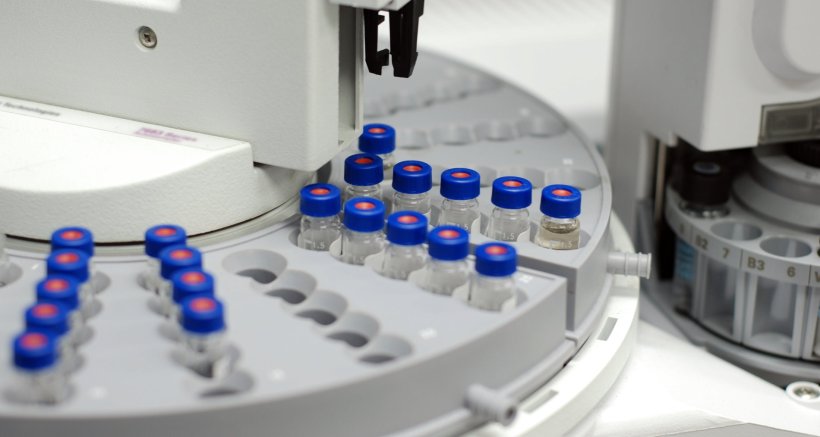
Image source: Shutterstock/Yenyu Shih
Article • UHPLC-MS/MS analysis
Predicting Covid-19 infection severity with mass spec
Using mass spectrometry and chromatography techniques, UK researchers have developed an approach to predict infection severity among Covid-19 patients, as well as potential outcomes. Work by the team from the University of Liverpool was outlined to delegates at the Medica/Compamed congress in Düsseldorf.

Image source: Medica
Diagnosis of Covid-19 is normally based on the qualitative detection of viral nucleic acid sequences. Although metabolic profiles are well suited to capture host state, many of the early metabolomics studies suffered from methodical weaknesses, stated doctoral researcher Ivayla Roberts from the Institute of Systems, Molecular and Integrative Biology in the Centre for Metabolomics Research at the University of Liverpool.
She said that many of the early metabolomics studies were either underpowered, measured only a restricted subset of metabolites, compared infected individuals against uninfected control cohorts that are not suitably matched, or did not provide a compact predictive model. Roberts outlined how the study team had created a well-powered study focused on ‘untargeted metabolomics of Covid-19 patient serum’ and validated their findings in a separate blind study on an additional 90 patients.
Metabolomic profiling
Our aim was to explore how metabolomic profiles can predict disease severity and outcome in infection
Ivayla Roberts
High resolution untargeted LC-MS (liquid chromatography-mass spectrometry) analysis was performed on patient serum using both positive and negative ionisation modes. A subset of 20 intermediary metabolites predictive of severity and outcome were selected based on univariate statistical significance and a multiple predictor Bayesian logistic regression model. The predictors were selected for their relevant biological function and include deoxycytidine and ureidopropionate (indirectly reflecting viral load), kynurenine (reflecting host inflammatory response), and multiple short chain acylcarnitines (energy metabolism) among others.
The study was launched in 2020 in the earlier stages of the coronavirus pandemic. Roberts said: ‘Our aim was to explore how metabolomic profiles can predict disease severity and outcome in infection. The demographic reflects known trends in Covid-19 infection with cases predominant in males and poor outcomes more likely in the elderly.’ Delegates heard that 74% of patients involved in the trial were eventually discharged. The expert explained that the trial started with 9,000 compounds and looked at ways of reducing the number of predictors, initially down to 900, and then down to 20 compounds, with a known biological function.
Roberts reported that some of these markers were found to be predictive of the inflammatory process in patients. She said pyrimidine metabolism changes in severe cases and poor outcome was likely to be an indicator of higher viral replication activity, while fatty acid beta oxidation indicates energy metabolism differences and are in higher levels in more severe cases of Covid-19 in patients and those with poor outcome. Another finding of the study was that the tryptophan/kynurenine degradation was a sign of host immune response.
With untargeted metabolomics of Covid-19 patient serum revealing potential prognostic markers of both severity and outcome, the researchers believe that following the findings of the study that prognostic tests based on the markers could help lead to improvement in the planning of Covid-19 patient treatment. (MN)
Profile:
Ivayla Roberts is doctoral researcher at the Institute of Systems, Molecular and Integrative Biology in the Centre for Metabolomics Research at the University of Liverpool. Originally with a computer science background, she transitioned to molecular biology research. Her research interests are metabolomics, mass spectrometry and the application of statistical and machine learning computational approaches to metabolomics. Her PhD is focused on metabolomics in Covid-19.
23.04.2022





